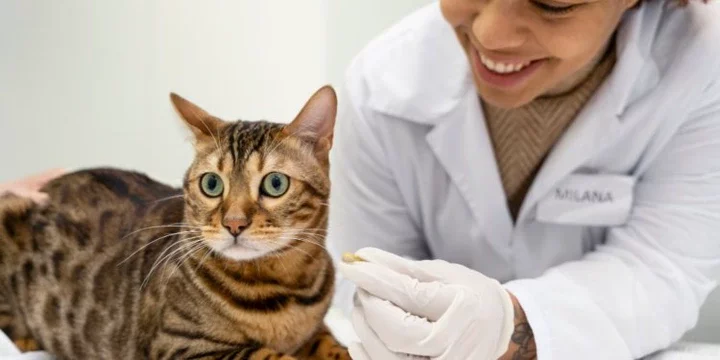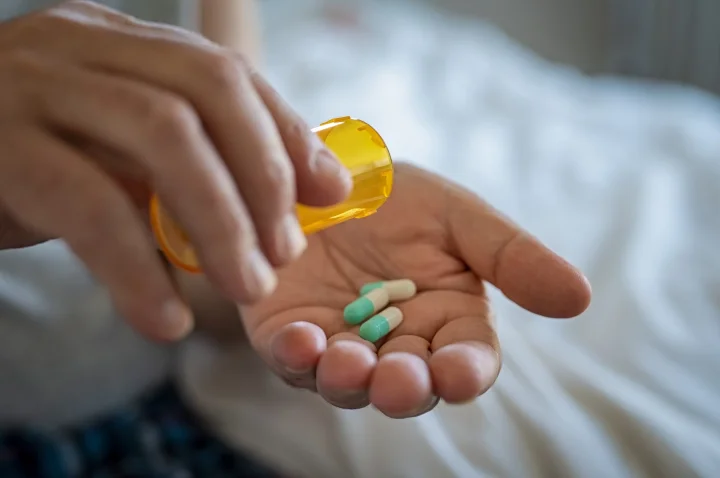
Many people have fallen in love with cats and choose to have them as pets. They are small, easy to look after, and most famous for their aloof personalities and graceful demeanour. As with any pet, it is important to see their needs to ensure they are in good health to get the most out of the relationship.
Common Cat Diseases and Infections
Here are some cat illnesses that every cat owner must know about:
Feline Immunodeficiency Virus (FIV)
Feline Immunodeficiency Virus (FIV) is a slow-acting virus that weakens the immune system over time. The symptoms of this disease do not show up until years after it was initially contracted.
Signs
Dishevelled coat
Weight loss
Poor appetite
Anemia
Enlarged lymph nodes
Fever
Diarrhea
Inflammation in eyes, mouth, and gums
Discharge from eyes or nose
Sneezing
Urinating outside the litter box or frequent urination
Skin problems like redness or hair loss
Treatment
A healthy diet will be recommended so that your cat stays at the peak of health and has relevant medication for secondary infections. Electrolyte or fluid replacement therapy, parasite control, anti-inflammatory drugs, and drugs that enhance immunity are some treatments for FIV.
Feline Rabies
Rabies is a central nervous system disease transmitted through the infected's bite. It goes through three stages of development: prodromal, furious, and paralytic. After getting bitten, symptoms will take about twelve weeks to show.
Signs
Increased yowling
Poor coordination
Excessive drooling
Conjunctivitis
Strange behaviour like eating stones or fighting imaginary foes
Unusual irritability
Cat vomiting
Fever
Weight loss
Depression
Lack of appetite
Deep breathing or respiratory failure
Treatment
There is no treatment available for feline rabies. The only way to prevent it is to ensure your cat has been given anti-rabies vaccines.
Feline Panleukopenia
Also known as feline distemper, this viral disease is extremely contagious among cats and works by killing off all the defence systems of the body.
Signs
Dehydration
Diarrhea
High fever
Rough fur coat
Anemia
Loss of appetite
Neurological symptoms
Depression
Treatment
Fluid treatment, antibiotics, B-Vitamins, and anti-nausea medications treat cats suffering from this disease.
Feline Herpes Virus
Also known as feline viral rhinotracheitis virus, this virus is one of the main cat disorders responsible for developing upper body congestion.
Signs
Cat eye diseases like conjunctivitis
Attacks of sneezing
Ulcers in the eyes
Lesions around the eyes, even appearing in the eyes
Discharge from the eyes and nose
Congestion
Loss of appetite
Fever
Lethargy
Squinting
Drooling
Depression
Treatment
Vets prescribe oral antibiotics and antiviral medications to help treat your cat's symptoms. Ointments or drops may also be prescribed to help relieve your cat's uncomfortable eye problems.
Upper Respiratory Infections
This term is often used to describe several problems that cause the same type of symptoms in your cat, affecting the throat and nose. Upper respiratory infections are a very common affliction in kittens and are highly contagious.
Signs
Nasal discharge
Fever
Conjunctivitis
Coughing
Rapid breathing
Drooling
Gagging
Runny eyes
Loss of appetite
Hoarse voice
Sores in the nose and mouth
Treatment
Managing the symptoms of this disease is focused on, and ointments or drops for the eyes are often prescribed. While a virus causes this disease, antibiotics are also prescribed as bacterial infections are often a secondary infection that occurs along with it. If your cat is not eating or drinking, he may need to be kept at the vet and given drips.
Renal Failure
Renal failure in cats usually refers to your cat's kidney problems. Your cat's kidneys may fail with age, though some kittens may even be born with this problem. If this disease is caught in the early stages, it is treatable, but once the disease progresses, treatment becomes harder.
Signs
Frequent urination or urinating outside the litter box
A lot of water consumption
Weight loss
Infections by bacteria in the kidneys and bladder
Vomiting and bloody or cloudy urine
Diarrhea and constipation
Indifference to what is happening around
Weakness
Ulcers in the mouth
Treatment
Depending on how severe this renal failure is, your vet will suggest the appropriate treatments for your cat. These can include IV treatments, specialized diets, and surgeries to remove any blockages that may be present. Cats with this problem benefit greatly from a diet rich in omega-3 fatty acids and Vitamin D.
Feline Leukaemia Virus
This infectious disease is considered one of the most important cat diseases worldwide. It often manifests itself through anaemia, immunosuppression, and malignancies in cats and, apart from trauma, is the leading killer of cats as it makes them prone to other deadly illnesses as well.
Signs
Yellow colour in the white of the eyes and mouth
Pale gums
Upper respiratory problems
Cat skin diseases
Weakness and lethargy that progresses slowly
Breathing problems
Fever
Diarrhea
Stomatitis, a gum disease
Loss of appetite and weight loss
Enlarged lymph nodes
Unspayed female cats will have problems with fertility
Treatment
No treatment helps to get rid of the disease itself, so the secondary infections that may arise due to this disease are often treated.
Heartworm
This problem is caused by the parasitic roundworm known as the heartworm. The severity of the condition really depends on how many heartworms have infested your cat and how the cat responds to them. Heartworms are spread through the bite of mosquitoes carrying the larvae.
Signs
Labored breathing
Coughing
Vomiting
Respiratory problems
Irregular heart rhythm
Treatment
In this case, prevention is easier than cure, and heartworm treatment is long and painful. Keep your cat healthy through diet, play, and other environmental factors, such as ensuring no room for mosquitoes to breed near where your cat stays. Sometimes, your vet may opt for surgical removal if the infestation is very severe. Medications will also be given to help kill the adult worms and the offspring.
Conclusion
Though these diseases may leave you worried, ensuring that your cat is fed the best diet and is taken care of very well can go a long way in preventing many of these issues. Take your kitten for regular check-ups at the vet, and you will not have anything to worry about.
Frequently Asked Questions
1. How often should I take my cat to the vet?
It is recommended that cats be taken to the vet at least once a year for a general check-up. Older cats or those with health issues may need more frequent visits.
2. What are some signs that my cat is sick?
Common signs of illness in cats include changes in appetite, weight loss, lethargy, vomiting, diarrhoea, and changes in behaviour or litter box habits.
3. Can indoor cats get diseases?
Yes, indoor cats can still get diseases. While they are at lower risk for certain infections, they can still contract illnesses from other pets, visitors, or through indirect contact.
4. How can I prevent my cat from getting sick?
Preventive measures include regular vet visits, a balanced diet, keeping up with vaccinations, and ensuring a clean and safe living environment for your cat.
5. What should I do if my cat shows serious disease symptoms?
If your cat shows serious disease symptoms, contact your veterinarian immediately. Early detection and treatment are crucial.
















Comments